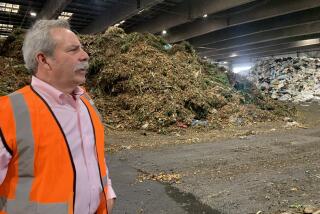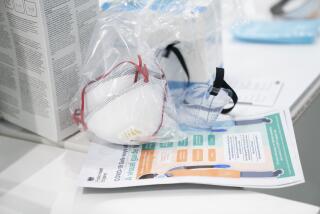FDA to Tighten Rules for Reusable Medical Devices
- Share via
WASHINGTON — U.S. health officials announced tighter controls Wednesday over the reuse of such disposable medical devices as heart catheters and angioplasty balloons, a common practice that has caused concern about patient safety.
For the first time, the Food and Drug Administration will regulate reprocessed devices that were intended for use only once, the same way it does other devices, the agency announced.
Companies and hospitals that recycle devices considered to pose the highest risk for harming patients will need FDA approval before they can clean, repackage and reuse or resell the products.
For other reprocessed devices deemed a lower risk, companies will need to register the products and report any safety problems to the FDA.
The new policy comes in response to criticism from members of Congress and others that a growing reprocessing industry may be putting patients’ health at risk.
Hospitals use recycled devices, usually without telling patients, to cut costs and reduce medical waste. Critics worry that reusing such devices could spread infectious bacteria or cause delicate devices to fail.
FDA officials have said they have no evidence that reusing single-use devices causes harm but decided they needed stricter oversight to track the growing practice.
“There are more complex devices now being reprocessed and . . . there has been some growth in the third-party reprocessing industry,” FDA spokeswoman Sharon Snider said.
The new rules take effect in six months for high-risk devices, in one year for moderate-risk devices and in 18 months for the lowest-risk devices.
An industry group said third-party reprocessors would comply with the FDA rules even though companies felt the tighter scrutiny was unnecessary.
“We don’t believe there’s a public safety rationale to impose this new level of regulation, [but] we feel very prepared to comply,” said Pamela Furman, executive director of the Assn. of Medical Device Reprocessors.
The most commonly reused devices include surgical saw blades, scissors used in abdominal surgery, heart catheters and forceps used for biopsies. Most would fall into the low- and moderate-risk categories.
Hospitals and reprocessing companies say reusing disposable devices is safe and charge that manufacturers oppose recycling so they can sell more of their products.
At a congressional hearing in February, lawmakers said they were outraged that the FDA had not moved to monitor the practice, which has been growing since the late 1970s.
A spokesman for House Commerce Committee Chairman Thomas J. Bliley, a Virginia Republican who has pressed the FDA to take action, said lawmakers would scrutinize the new rules.
“We certainly hope it does go far enough in protecting patients,” the spokesman said.






